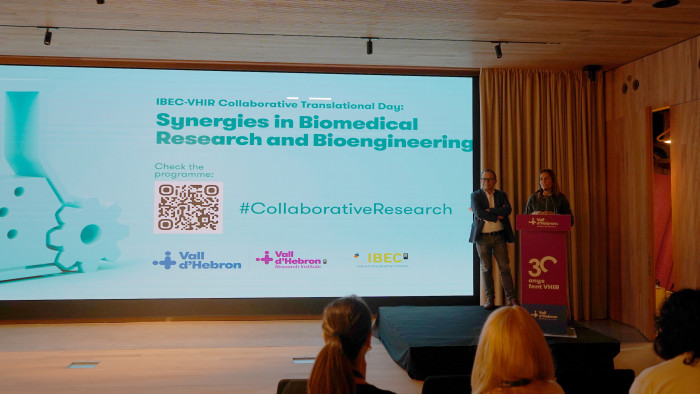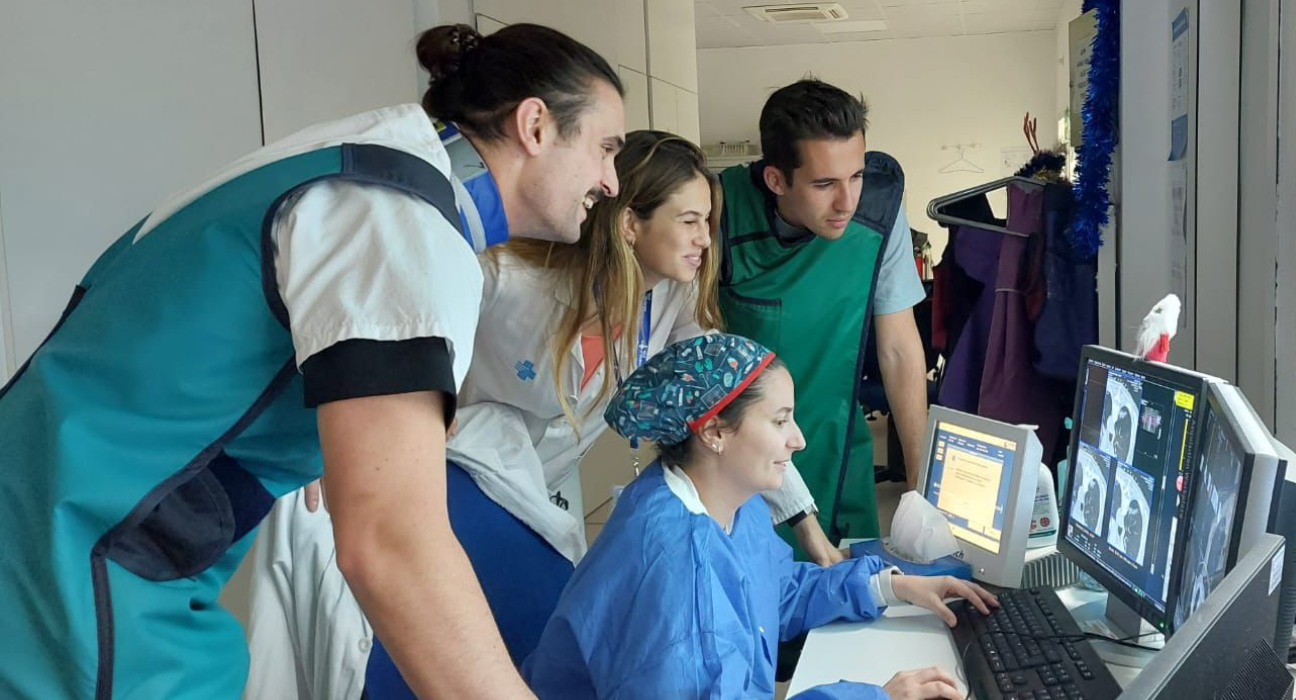Radiodiagnosis (IDI)
The Institute for Diagnostic Imaging uses the most advanced techniques, and contributes to generalising the application of this type of diagnostics to improve care and the quality of image-based explorations and diagnoses.
The Institute for Diagnostic Imaging (IDI) is a state-owned company that is affiliated with Catsalut, and has one of its centres at the Vall d'Hebron Hospital. IDI manages, administers and executes image diagnostic services and nuclear medicine services.
At our hospital, we conduct explorations using: magnetic resonance imaging, computed tomography, nuclear medicine, PET-CT, angiography, ultrasound, mammography, densitometry, conventional radiology, and orthopantomography, among others. This centre is also charged with helping with technological innovation projects, developing research and promoting teaching, thus contributing to scientific and social progress.
IDI and Vall d'Hebron are committed to innovation. In this context, we have PET-CT equipment that allows us to analyse molecular aspects of diseases such as cancer and neurological or cardiovascular disorders. This equipment, which can carry out between 4,000 and 5,000 tests a year, also offers the possibility of introducing new radiopharmaceuticals that improve the management of diseases with a specific molecular profile.
General Hospital
- Angioradiology Unit (Ground Floor) Tel. 93 428 20 00
- Nuclear Medicine Unit (Ground Floor) Tel. 93 274 61 22
- PET Unit (Floor 1) Tel. 93 489 42 76
- Conventional Radiology Unit (Ground Floor) Tel. 93 274 67 96
- Magnetic Resonance Unit (Floor 2) Tel. 93 428 60 34
- Computed Tomography Unit (Ground Floor) Tel. 93 428 20 00
Traumatology Unit
- Computed Tomography Unit. (Floor 1) Tel. 93 428 30 51
Maternity and Children's Hospital
- Magnetic Resonance Unit (Floor 2) Tel. 93 428 94 06




